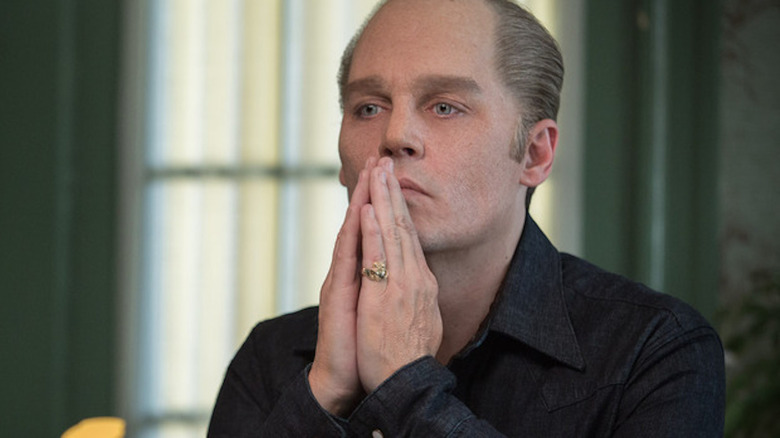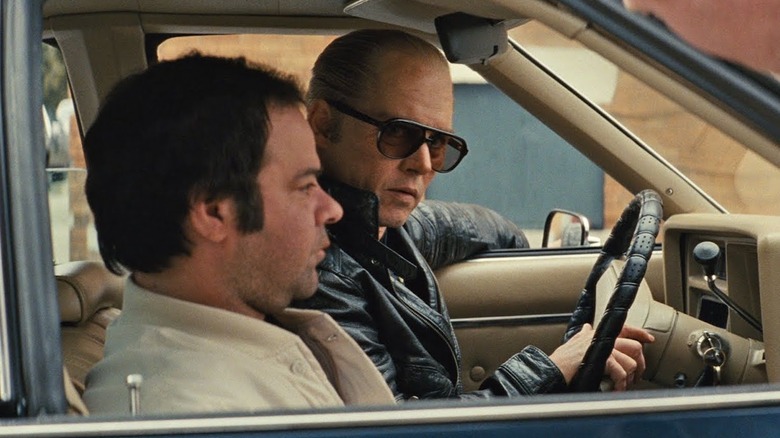Scott Cooper hit a home run in his first filmmaking at bat with “Crazy Heart,” a melancholy drama about an alcoholic country music singer (Jeff Bridges) who’s wrecked his life many times over and is about to crash for the last time despite entering into an unexpectedly healthy relationship with a journalist (Maggie Gyllenhaal). The film earned Bridges his first, long overdue Oscar for Best Actor, and though the film itself was a touch formulaic, Cooper’s direction of his first-rate cast (which also included Colin Farrell and, in a nod to the similarly themed “Tender Mercies,” Robert Duvall) gave him a reputation as an actor-friendly filmmaker.

Cooper’s follow-up was the moody-as-hell crime yarn “Out of the Furnace,” which, even with another spectacular cast (this one featuring Christian Bale, Casey Affleck, Woody Harrelson, Forest Whitaker, Zoë Saldaña, and several other acting titans), failed to connect with critics. Cooper’s sophomore effort missed commercially as well, but he was due another shot with “Crazy Heart” not too far off in the rearview, so he took on the gangster flick “Black Mass.” Starring Johnny Depp (sporting a bald cap) as real-life Boston mobster Whitey Bulger, the film entered the 2015 awards season as a prestige-pic thoroughbred. But despite receiving good to great reviews for his performance, Depp couldn’t overcome critics’ mixed reactions to the movie overall. The film underperformed at the box office and was quickly forgotten, like so many other would-be Oscar contenders.
And like so many shrugged-off studio movies, “Black Mass” has managed to find a second life via streaming. The film hit Netflix five days ago, and currently ranks fourth behind the streamer’s originals “Uglies,” “Rebel Ridge” (a must-watch), and “Into the Fire: The Lost Daughter.” Why has Cooper’s film suddenly caught on nine years after its theatrical release?
I saw “Black Mass” when it first came out, and have zero desire to revisit what struck me at the time as an empty, aimless hybrid of “Goodfellas” and “The Departed.” Cooper has once again assembled a knockout cast (Joel Edgerton, Benedict Cumberbatch, and Dakota Johnson are just a few of the big names that float through this gangster dress-up exercise), but the screenplay credited to Jez Butterworth and Mark Mallouk is disappointingly derivative.

“Black Mass” does, however, hold a certified 73% fresh rating at Rotten Tomatoes, which is high enough for Netflix subscribers to give it a look-see. People have always loved gangster movies (it was one of the first genres to catch on with moviegoers at the advent of the sound era almost a century ago), so a seemingly well-reviewed effort headed up by a big name like Depp (who’s apparently still popular and working after getting a favorable verdict in the Depp v. Heard lawsuit) will draw quite a few clicks.
I say “seemingly well-reviewed” because, if you read the fresh write-ups (like the one written by /Film’s Angie Han at the time), many of them range from tepidly positive to mixed. But if people throw on “Black Mass” with mild expectations, they’ll probably get what they’re looking for: flashy performances (with questionable Boston accents), loads of violence, and an overly familiar plot that invites distracted viewing. Sometimes, that’s enough.





